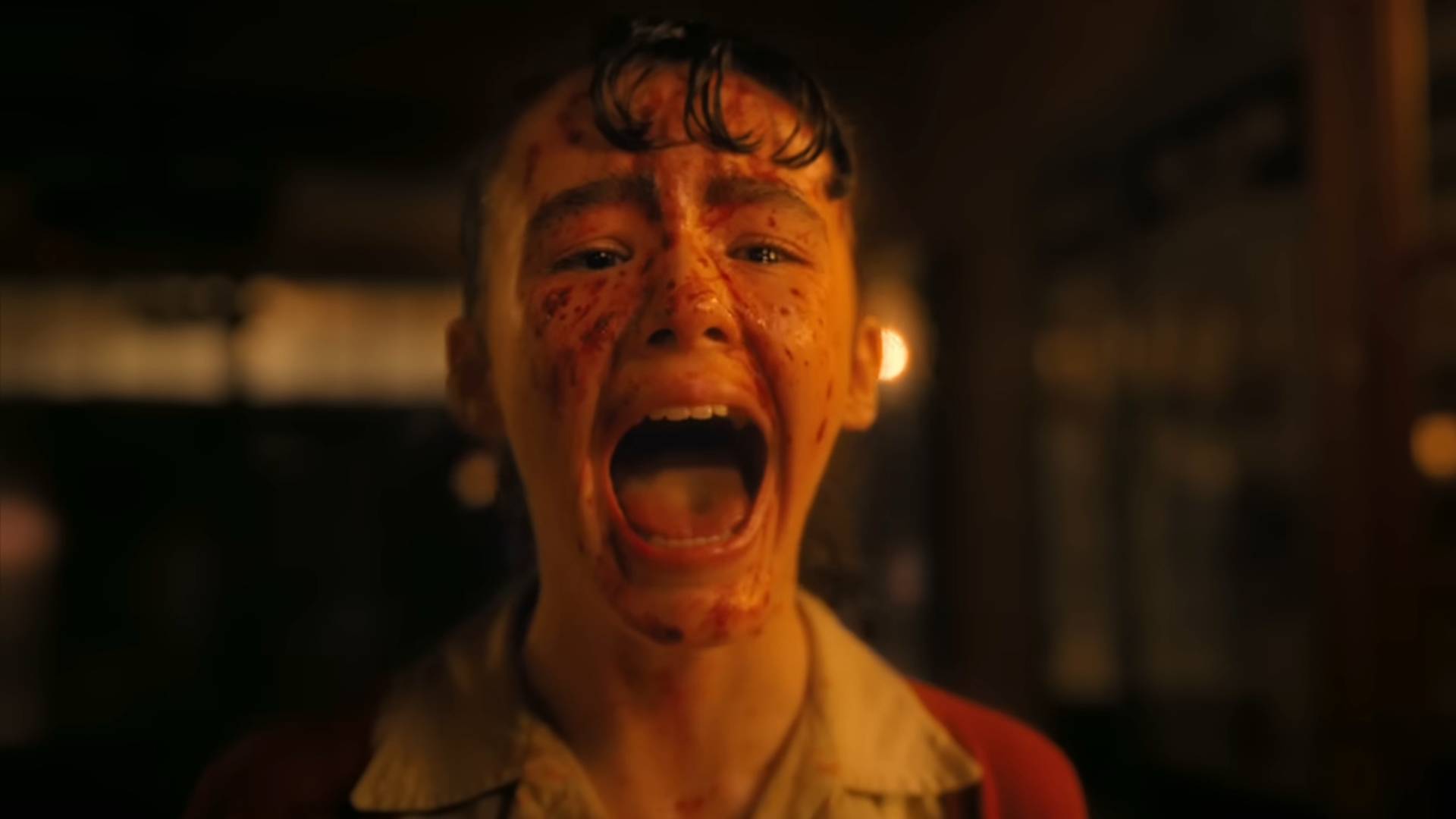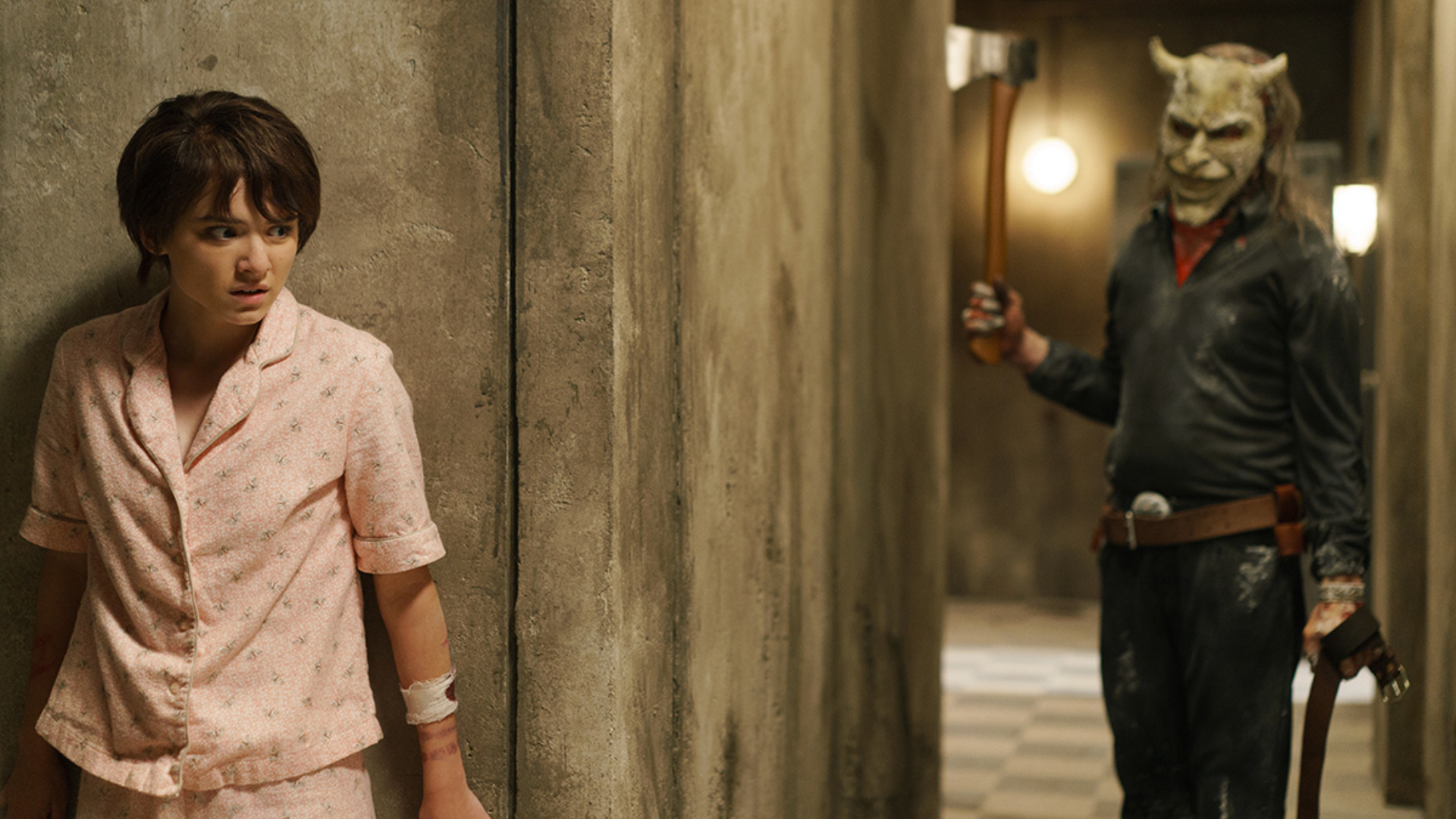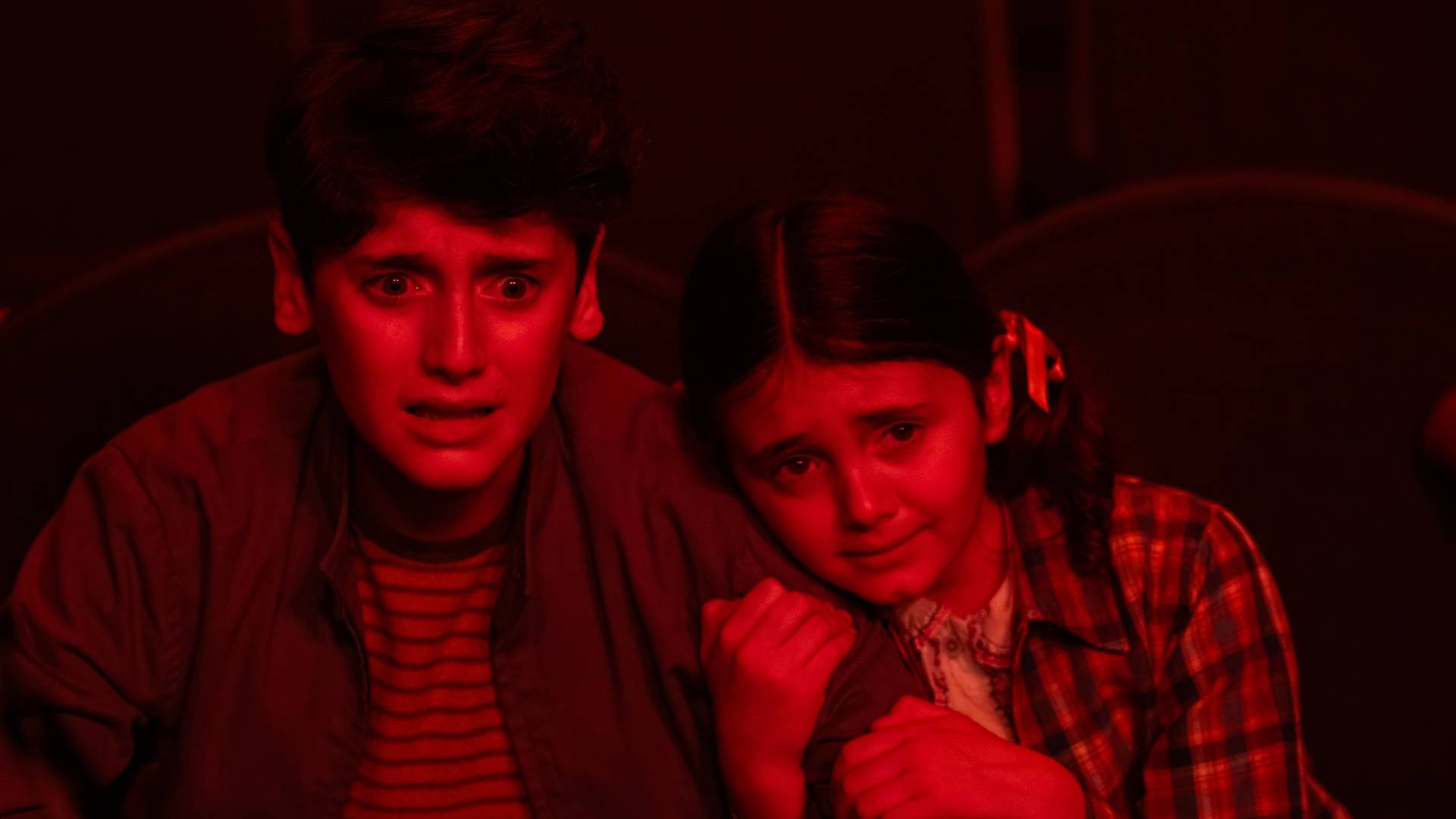It: Welcome to Derry shares an important similarity with some of the scariest horror movies ever made, and it's all thanks to Stephen King
Opinion | Shows like Welcome to Derry and movies like Black Phone 2 remind us what it's really like to be a small, fragile thing in the world

I remember being a mean child, insulting my school friends when we were still only as tall as our parents' knees. I remember being sad, always carrying black thoughts with me like a grim balloon, though I didn't understand why. Stephen King, however, would have known.
I think the horror writer challenges his audience's expectations (and maybe memories) of what children are capable of and uses this subversion to create some of the most empathetic stories in horror. This applies, too, to those who take after him, like director Andy Muschietti, currently working on HBO Max's It: Welcome to Derry prequel, and Scott Derrickson, who's behind the purportedly "scariest horror movie of all time" Sinister (2012), as well as film adaptations of King's son Joe Hill's The Black Phone story. They remind us what it's really like to be a small, fragile thing in the world – it's not just crayons and fairies.
In the case of Welcome to Derry, childhood is something you're chained to. The show is set in 1962, 27 years before monster clown Pennywise terrorized the intrepid Losers Club in Muschietti's 2017 film – and more direct King interpretation – It. Nonetheless, the show retains the more mundane injustices important to King's 1986 novel; each of its young protagonists have been hurt by parents, classmates, or the unpredictable unkindness of fate long before they discover any cosmic horror.
The kids are not all right

The same is true for many of the most enduring Stephen King stories and adaptations. Whether it's Carrie, released in 1974, The Shining, published in 1977, or 1980's Firestarter, 1983's Pet Sematary, and so on… children are punished by circumstance before being pulverized by the supernatural. The cruelty of reality doesn't allow every child to be as uncorrupted and docile as they have a right to be. I've learned that firsthand.
So I've always found solace in characters with feelings bigger than a meteor shower. Like I did, many of these children learn that trouble at home, or in their minds, can teach them their true, heart-breaking potential.
Take Carrie, for instance, the prom queen crusted over in pig's blood. Her telekinetic power keeps her safe from her abusers for once in her life, though it destroys her in the process. A cruel side effect of getting her first period.
Gwen (Madeleine McGraw) in Derrickson's new The Black Phone 2 movie – which Stephen King was happy to call "BETTER" than the original – also demonstrates an impressive, intuitive capacity for violence. Though, her dad discourages her from dating and talking about her feelings, mistaking her as just a confused little girl.
Actually, she's battling a demonic serial killer in her dreams. Her talent for prophecy is becoming stronger as she gets older. Gwen tells anyone who will listen that she thinks she might be becoming "crazy" instead, but the problem is really the fact that none of the adults in her life want to give her the respect she's due.
Old enough to know better

The children in Sinister face the same issue. (Spoilers to follow for both Sinister and Welcome to Derry episode one). Their parents could never see their chubby faces as anything other than meek and malleable. That's what makes it so shocking when Derrickson finally reveals through haunting Super 8 snuff films that these angelic kids, by way of an ancient demon, were actually responsible for a string of unexplainable murders – one of them even lawnmowed their mom's face off.
It might be disgusting to put children in these situations that horror media like Welcome to Derry and Sinister do boldly. Welcome to Derry's pilot episode ends in an entire group of high schoolers with barely any upper-lip hair dead and bloody on the ground. In Sinister, the children are safe from carnage, but they become orphan servants to Hell. These, objectively, are uncomfortable endings. No one likes seeing a baby cry, but it's much more tolerable than imagining it losing a limb.
And, on film, King's books about children are even more gruesome – you can't rely on your imagination to soften the impact of certain scenes when they're actively playing out in front of you. You have to witness them and be revolted. Nothing you see will ever be worse than what happens in real life, anyway.
Having spent a long time being told by adults that I was "mature for my age" while they ignored the rest of what I said, I appreciate that brutal aspect of Stephen King's horror stories more than anything else; through discomfort, he successfully conveys the messy, tragic, glittering humanity in the most disenfranchised people, especially children. He treats their pain with respect.
For some people watching The Black Phone, Sinister, and, now, Welcome to Derry, that's scary. For others, it's overdue.
IT: Welcome to Derry is currently airing Sundays on HBO in the US and on Sky/NOW in the UK. Never miss an episode with our IT: Welcome to Derry release schedule.

Ashley is a Senior Writer at GamesRadar+. She's been a staff writer at Kotaku and Inverse, too, and she's written freelance pieces about horror and women in games for sites like Rolling Stone, Vulture, IGN, and Polygon. When she's not covering gaming news, she's usually working on expanding her doll collection while watching Saw movies one through 11.
You must confirm your public display name before commenting
Please logout and then login again, you will then be prompted to enter your display name.


